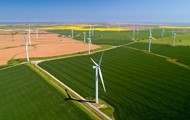DSO transition : Navigating the Future of Energy Networks
The transition from Distribution Network Operators (DNOs) to Distribution System Operators (DSOs) is more than just a subtle change—it is a fundamental shift that reshapes the way energy networks function. As decentralised energy resources (DER) grow and grid demands evolve, a structured and strategic DSO transition is essential to ensure efficiency, reliability, and long-term sustainability.
EA Technology has collaborated with network operators across the UK, Australia, and New Zealand to define what the DSO transition means for them and how it can be effectively managed. Our expertise helps networks adapt to new operational challenges, regulatory changes, and evolving customer needs while maintaining a stable and cost-efficient energy supply.
What is the DSO Transition?
Traditionally, DNOs have focused on passively managing electricity distribution, ensuring power flows from central generators to end users. However, the rise of distributed energy resources (DER), smart grid technologies, and multi-directional energy flows has driven the need for a more dynamic role—leading to the transition to DSO.
A DSO takes on an active role in managing the network, including:
- Optimising real-time energy flows to integrate renewable energy sources.
- Facilitating demand-side response to enhance grid stability.
- Enabling peer-to-peer energy trading and local energy markets.
- Managing smart grid infrastructure and digital network operations.
This transformation ensures that networks can adapt to the Future Grid, supporting greater flexibility, resilience, and customer participation in energy markets.
Why is the DSO Transition Important?
The shift to a DSO model is critical for addressing the challenges of a changing energy landscape.
Key benefits include:
- Improved Grid Efficiency: DSOs enhance real-time network management by balancing supply and demand more effectively.
- Greater Integration of Renewables: A DSO-led approach enables more solar, wind, and battery storage integration without overloading the network.
- Enhanced Flexibility: With demand-side response and advanced grid analytics, DSOs improve overall network resilience.
- Consumer Empowerment: Transitioning to DSO operations enables customers to become prosumers, actively participating in energy markets.
Key Challenges in the DSO Transition
Despite its advantages, the DSO transition comes with challenges, such as:
- Regulatory and Policy Frameworks – Establishing clear market rules and incentives for DSOs to operate efficiently.
- Investment in Digital Infrastructure – Deploying real-time data analytics, smart meters, and automation to optimise energy distribution.
- Stakeholder Coordination – Ensuring alignment between government bodies, utilities, and consumers during the transition.
Navigating these challenges requires a clear roadmap, strategic investment, and industry collaboration to ensure a seamless and cost-effective DSO transition.
How EA Technology Supports Your DSO Transition
At EA Technology, we provide expert guidance and industry-leading solutions to support energy networks in transitioning from DNO to DSO. Our services include:
- Strategic Planning: We develop customised roadmaps to align with your network's unique requirements.
- DER & Smart Grid Integration: Our expertise ensures seamless integration of renewables and flexible energy assets.
- Regulatory & Policy Support: We assist in navigating evolving market regulations to stay compliant and competitive.
- Investment Optimisation: Our advanced analytics help prioritise investment in the most impactful areas.
Explore our related services:
Related Services

DER Integration
EA Technology provides consultancy services to help Australian networks best manage the take up of Distributed Energy Resources (D...

Achieving Net Zero
EA Technology offers expert consultancy to Australian energy networks in achieving Net Zero. Find out more!

Future Grid Strategic Planning
EA Technology's highly qualified experts can help you with strategic planning for your future grid.
